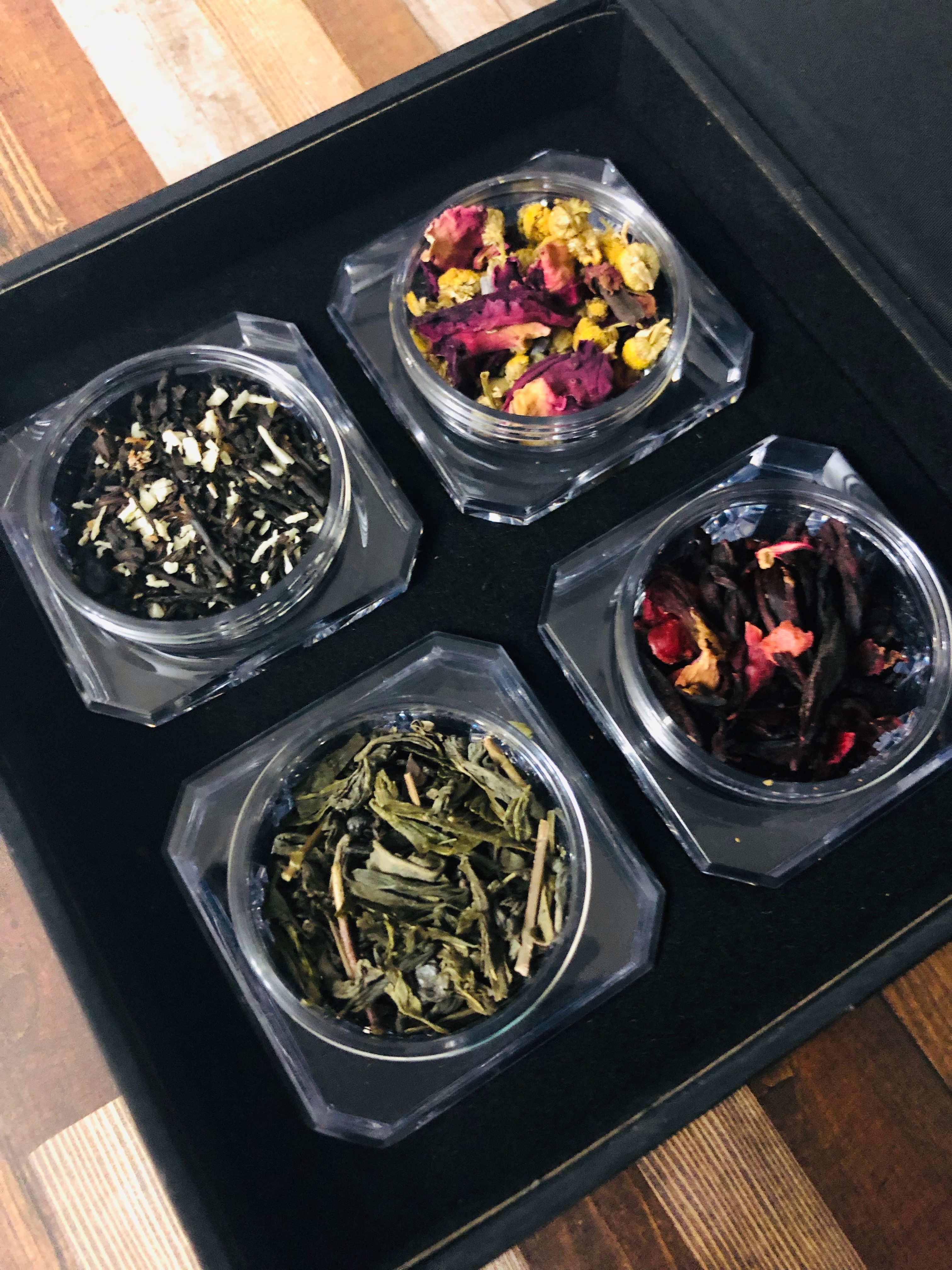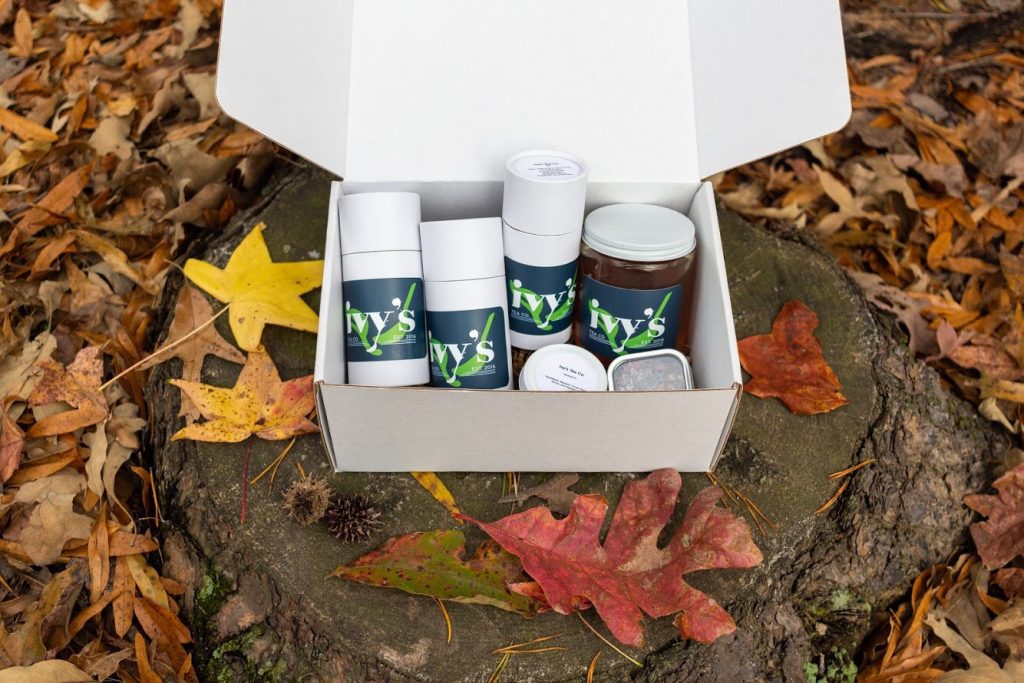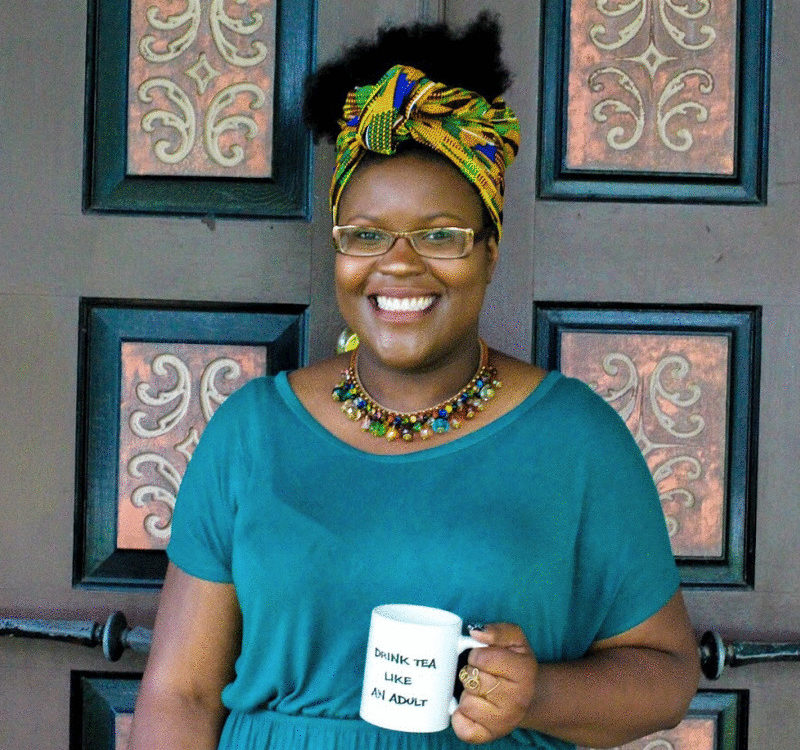[ad_1]
Meet Shanae Jones, an herbalist and the founder of Ivy’s Tea Co., an organic line of locally-sourced, handcrafted teas, tisanes, and herb-infused sweeteners. Inspired by childhood teatime with her grandmother, Jones launched Ivy’s Tea Co., and combined hip-hop and herbalism so she could teach herbalism in a fun and refreshing way—while making the holistic health and tea market more inclusive.
Consumers of Ivy’s Tea have purchased teas to help with a variety of ailments such as the flu and severe menstrual cramps:
“Our ‘Sister Sister 2’ tea relies on stinging nettles, a mineral-rich herb, to help women manage menstrual pain,” said Jones. “We’ve also had a customer use our ‘What the Flu?’ tea to make Elderberry syrup for herself and her daughter. ‘What the Flu?’ is a blend of elderberries, ginger root, and turmeric to help support the immune system, especially during the fall and winter seasons when we’re resting less, eating fewer leafy vegetables and getting much less sun than usual — these all help improve the immune system, too.”
In addition to selling herbal tea, Jones provides a wealth of online education and provides philanthropic support to make an impact on the lives of others—specifically in the black community. If Jones has her way, you’ll never look at a cup of tea the same way again. We caught up with Jones to talk tea culture, benefits, and holistic medicine myths and misconceptions.

What makes Ivy’s Tea Co. so unique?
Consider this: What if your hot beverage connected with your identity? Most of us cannot say that our experience buying tea (or coffee or kombucha or any other wellness beverage for that matter) really connects with who we are. Current herbal tea companies on the market are just not inclusive — at all. The others that verge outside of typical western herbal remedies bring to the market what I would call wellness porn — really pushing a strict and regimented lifestyle that includes hours of meditation, ritualism, and yoga, but some people just want herbal tea. And Ivy’s Tea Co. provides that. We’re committed to bringing -lack culture to the herbal tea company industry.
Beyond that, our teas are high quality, organic, and hand-blended by an herbalist. Many come to our site intrigued by the catchy product names (e.g., Green Bae, Pusha Tea, #TrapTea Holiday Gift Set) and funny product descriptions, but they all walk away informed about some aspect of herbalism and that’s what makes us so unique.
Our most popular selling tea is our staple tea and the first tea we brought to market, Rise & Grind, a black tea with coconut and vanilla. It’s a full leaf black tea full of flavor with a hint of coconut, the vanilla rounds out the sip.
Let’s talk about some of the myths or misconceptions of holistic medicine. If a person has a certain illness, like high blood pressure, do they have to choose holistic medicine in lieu of prescribed medicine? Or can they choose both?
Of course, you can choose both. That’s true holistic living — being balanced in accordance with your own body and lifestyle. With the right health care professional, an informed consumer will find that holistic medicine can work well with prescriptions from your doctor. Sometimes, there are contraindications between herbs and prescribed meds, which is why it’s so important to talk to your doctor before you begin any herbal medicine regimen. On the flip side, holistic medicine is not always taking herbal medicine, sometimes it’s meditation, journaling, spending more time with family and friends, taking a vacation, etc.

Ivy’s Tea
Does alternative medicine only offer placebo effects?
No way. I’ve seen alternative medicine work; not just for myself, but for others. It requires time, patience, and a lifestyle change. Take something like insomnia for example. Many people end up using herbs to treat the symptoms and not the cause. While you can use conventional medicine to treat symptoms, most times, herbal medicine just doesn’t work like that.
Can you share your perspectives on the importance of holistic medicine, especially in communities of color who suffer more from heart disease, diabetes, etc?
Holistic living, particularly as it pertains to simple dietary changes, for example, can make significant improvements in the lives of black and brown people. We’re not even talking about going to the health food store and spending money on expensive essential oils or superfood powders. We’re talking about eating more fresh fruits and vegetables, adding garlic and ginger to the diet, using more spices, etc. Holistic living can be one of the most affordable ways to improve the quality of life.
As it pertains to heart disease and obesity, your diet can change your DNA – your diet includes what you eat, but also what you see, what you speak, and what you feel. Making that change with holistic living from the inside out (or the outside in, depending on your circumstances) can be the biggest act of self-love and self-care.
[ad_2]
Source link

